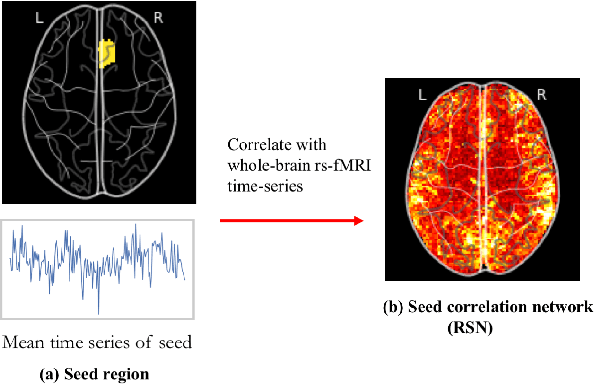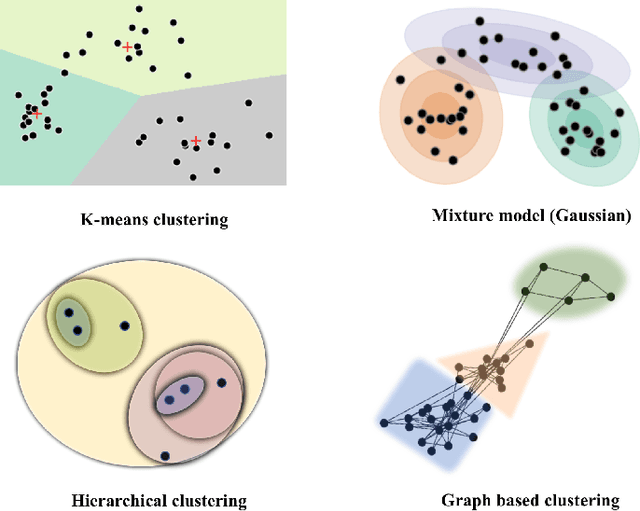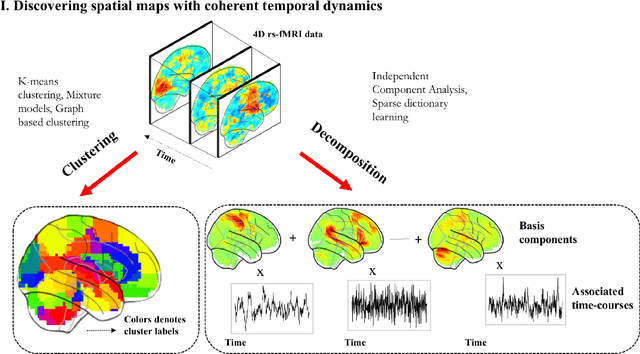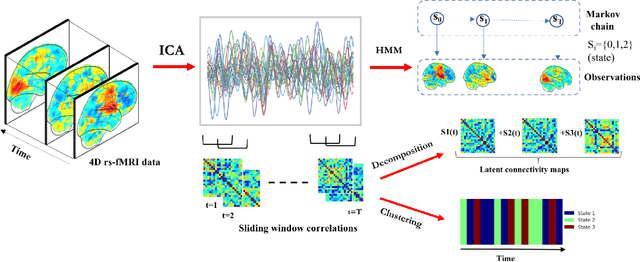Machine learning in resting-state fMRI analysis
Paper and Code
Dec 30, 2018



Machine learning techniques have gained prominence for the analysis of resting-state functional Magnetic Resonance Imaging (rs-fMRI) data. Here, we present an overview of various unsupervised and supervised machine learning applications to rs-fMRI. We present a methodical taxonomy of machine learning methods in resting-state fMRI. We identify three major divisions of unsupervised learning methods with regard to their applications to rs-fMRI, based on whether they discover principal modes of variation across space, time or population. Next, we survey the algorithms and rs-fMRI feature representations that have driven the success of supervised subject-level predictions. The goal is to provide a high-level overview of the burgeoning field of rs-fMRI from the perspective of machine learning applications.
 Add to Chrome
Add to Chrome Add to Firefox
Add to Firefox Add to Edge
Add to Edge